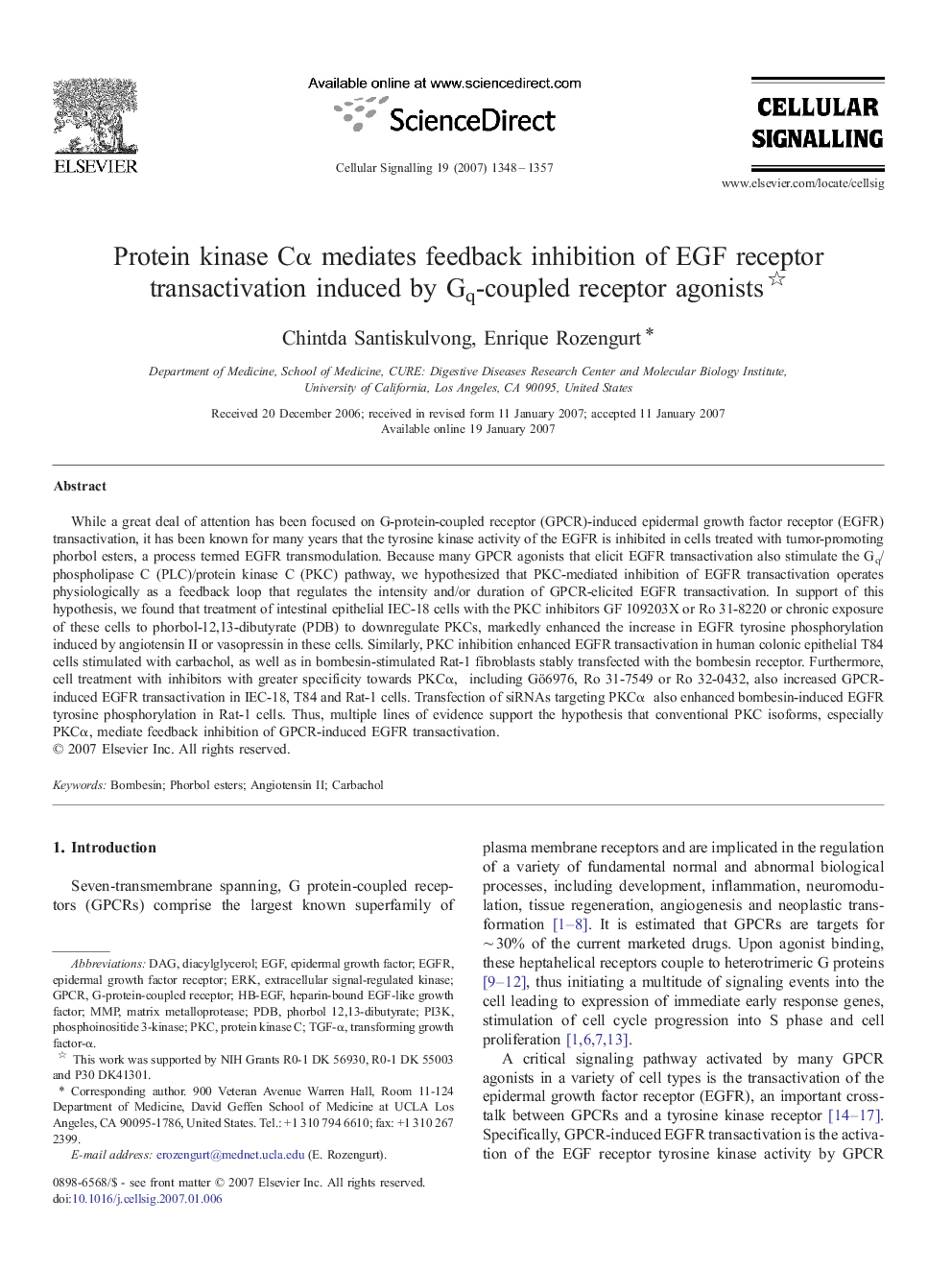| Article ID | Journal | Published Year | Pages | File Type |
|---|---|---|---|---|
| 10816005 | Cellular Signalling | 2007 | 10 Pages |
Abstract
While a great deal of attention has been focused on G-protein-coupled receptor (GPCR)-induced epidermal growth factor receptor (EGFR) transactivation, it has been known for many years that the tyrosine kinase activity of the EGFR is inhibited in cells treated with tumor-promoting phorbol esters, a process termed EGFR transmodulation. Because many GPCR agonists that elicit EGFR transactivation also stimulate the Gq/phospholipase C (PLC)/protein kinase C (PKC) pathway, we hypothesized that PKC-mediated inhibition of EGFR transactivation operates physiologically as a feedback loop that regulates the intensity and/or duration of GPCR-elicited EGFR transactivation. In support of this hypothesis, we found that treatment of intestinal epithelial IEC-18 cells with the PKC inhibitors GF 109203X or Ro 31-8220 or chronic exposure of these cells to phorbol-12,13-dibutyrate (PDB) to downregulate PKCs, markedly enhanced the increase in EGFR tyrosine phosphorylation induced by angiotensin II or vasopressin in these cells. Similarly, PKC inhibition enhanced EGFR transactivation in human colonic epithelial T84 cells stimulated with carbachol, as well as in bombesin-stimulated Rat-1 fibroblasts stably transfected with the bombesin receptor. Furthermore, cell treatment with inhibitors with greater specificity towards PKCα,  including Gö6976, Ro 31-7549 or Ro 32-0432, also increased GPCR-induced EGFR transactivation in IEC-18, T84 and Rat-1 cells. Transfection of siRNAs targeting PKCα  also enhanced bombesin-induced EGFR tyrosine phosphorylation in Rat-1 cells. Thus, multiple lines of evidence support the hypothesis that conventional PKC isoforms, especially PKCα, mediate feedback inhibition of GPCR-induced EGFR transactivation.
Keywords
EGFRPI3KMMPEGFTgf-αHB-EGFPDBERKPKCGPCRG-protein-coupled receptorAngiotensin IIPhorbol estersBombesintransforming growth factor-αdiacylglycerolDAGepidermal growth factorphorbol 12,13-dibutyratephosphoinositide 3-kinaseMatrix metalloproteaseProtein kinase CCarbacholextracellular signal-regulated kinaseEpidermal growth factor receptor
Related Topics
Life Sciences
Biochemistry, Genetics and Molecular Biology
Biochemistry
Authors
Chintda Santiskulvong, Enrique Rozengurt,
